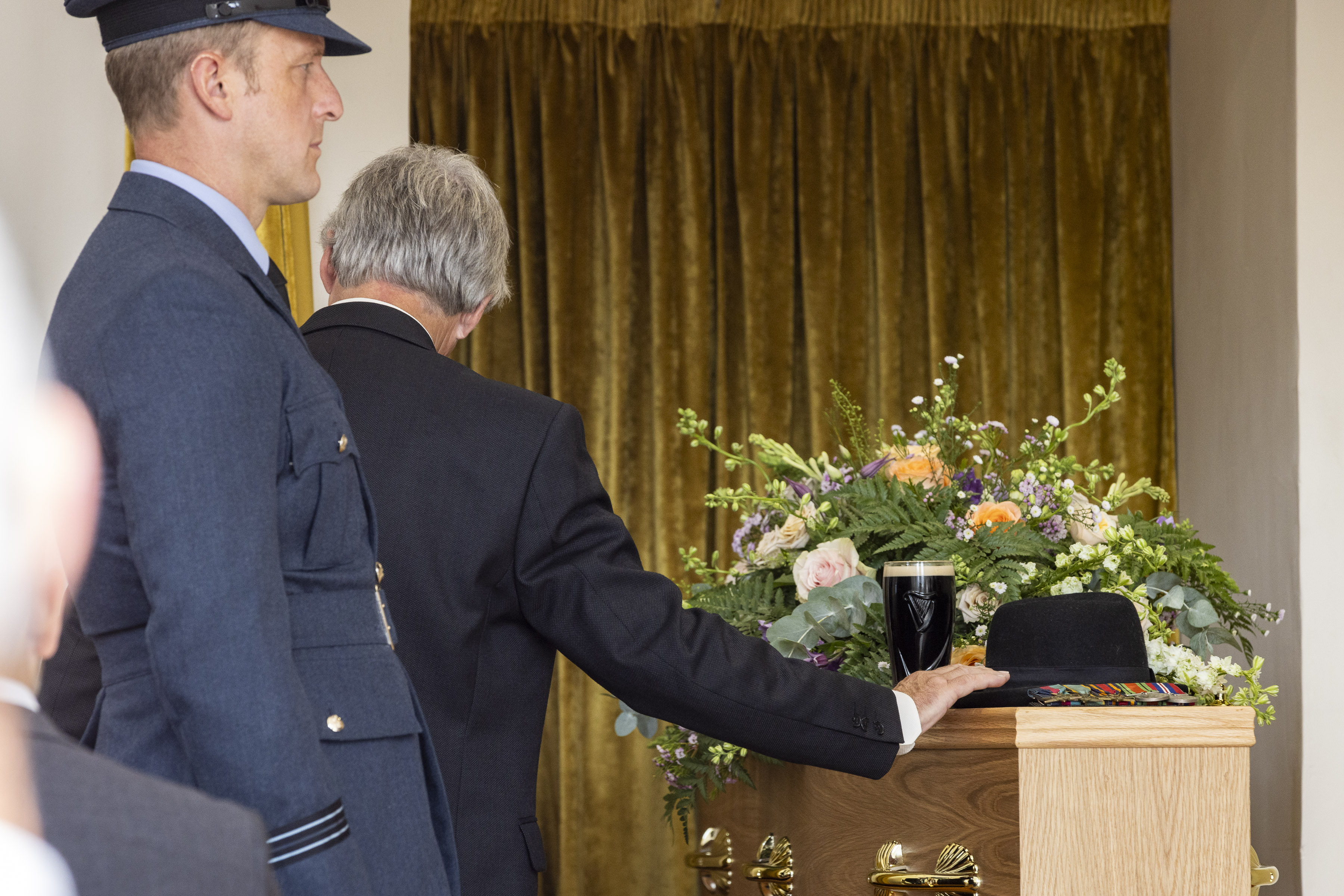
The family of a veteran who survived being shot down over the Burmese jungle and evaded capture by Japanese soldiers has been joined by the Royal Air Force to commemorate his incredible life.
Warrant Officer (retired) Joel Lawrence, a former wireless operator on the Dakota Mk 3 aircraft during the conflict with Japan in the Second World War, sadly passed away at the age of 101 in his home in Cornwall.
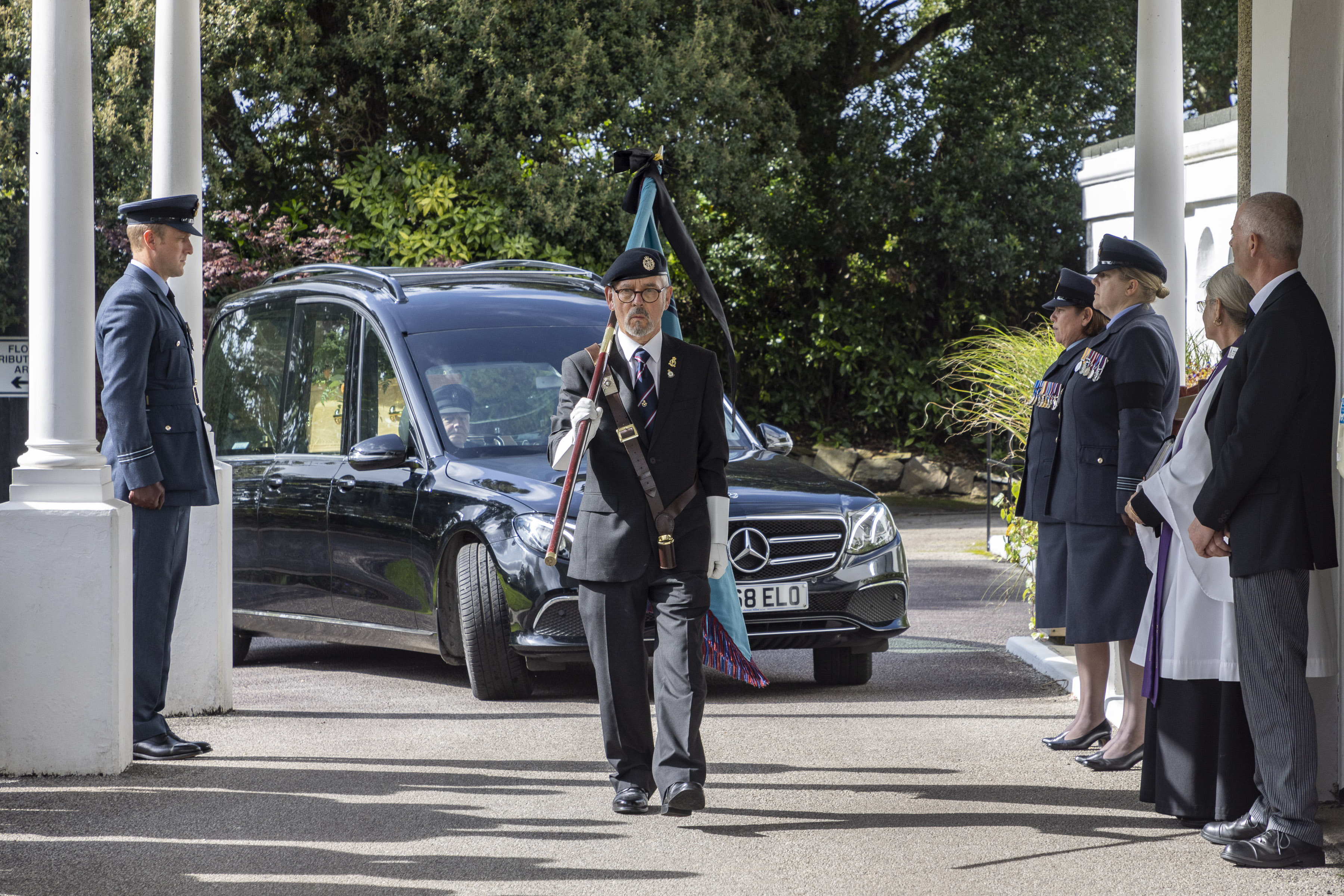
At a discreet ceremony held in Truro, the Lawrence family were accompanied by personnel from RAF St Mawgan to pay their respects and to keep alive the legacy of Joel’s incredible exploits in the jungles of Burma.Born in Hastings in November 1921, Joel Lawrence was 18 when he joined the RAF, qualifying as a wireless operator and air gunner in 1940. He joined No. 139 (Jamaica) Sqn at Horsham St. Faith, near Norwich, in February 1942, from where his squadron left for India.
Not long after arriving in India, his squadron was absorbed into 62 Sqn and tasked to air supply the British and Allied ground troops fighting against the Japanese army in Burma.
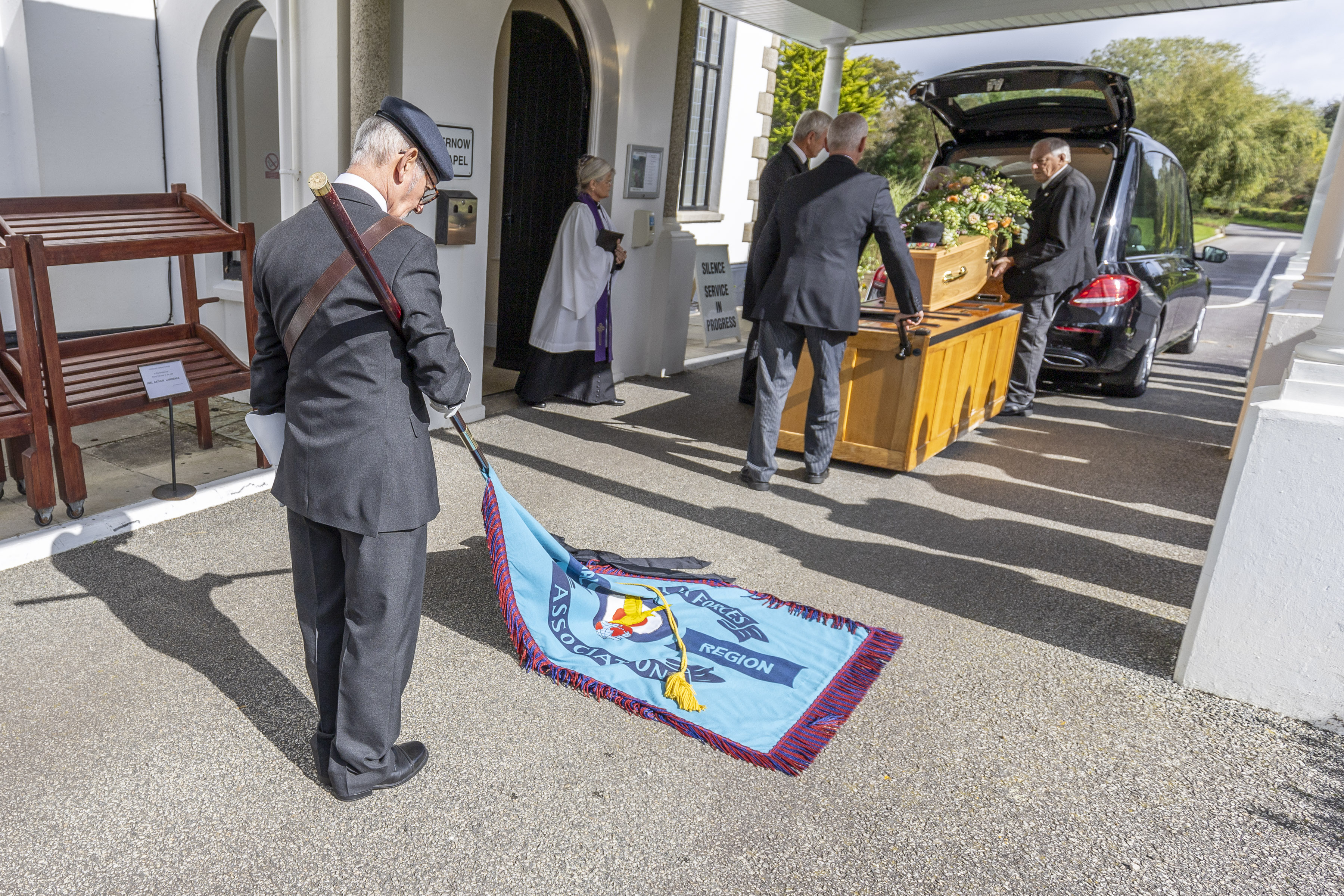
"On May 15, 1945, he was due to go for two weeks’ rest and recuperation away from daily ops, up in the hills, but was persuaded to do one last flight by in Burma by his Commanding Officer before taking a break. Dad had argued that he did not want to fly with the newly arrived young pilot, who was straight out of flying school, but agreed to go on this one last flight.” Jack Lawrence, son of Joel.
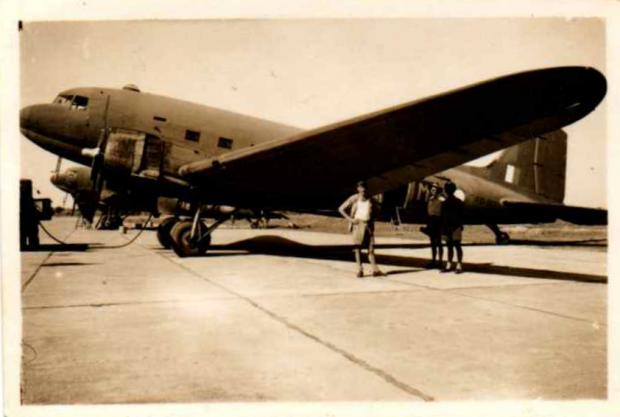
The team at RAF St Mawgan were able to track down the original 62 Sqn records from May 1945 for the family, through the Air Historical Branch, which gave the following account.
"Whilst flying at 700 ft over Myangnya on the way to a supply drop near Rangoon, their Dakota was hit by anti-aircraft fire. The crew could see no visual effect immediately, so carried on course. After a few minutes they noticed that one of the starboard petrol tanks had lost over 100 gallons, so they decided to turn back immediately to try and reach base.
Shortly afterwards the starboard engine set on fire and spreading to the wing, the load was jettisoned in preparation for a forced landing. An SOS was sent giving a position at the coast they hoped to reach, but as the propeller would not feather, they could not climb over the last range of hills.
Despite burns on his face, the pilot made an excellent landing in a paddy field South of the village of Talakwa and all crew survived. The port engine started burning as soon as the aircraft stopped. In the hurry to get out, nothing was recovered except only one revolver, one round of ammunition, one button-concealed compass and a map. Two members of the crew even left their shirts behind. They immediately ran from the aircraft into the jungle as they knew that there would be a Japanese hunter force in the vicinity."
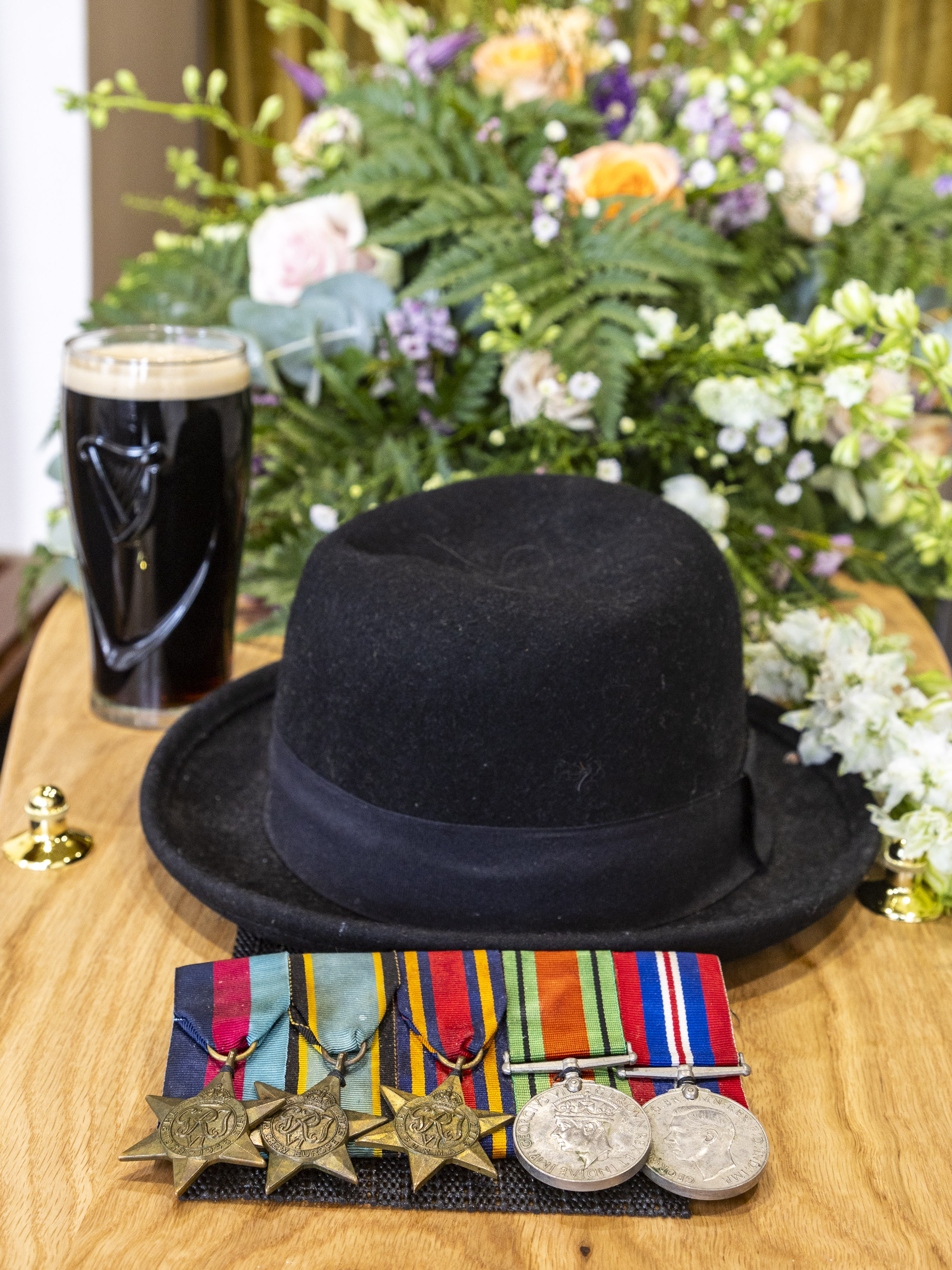
““We are so honoured to be able to support Joel’s family during this difficult time, and to keep alive his incredible story. RAF St Mawgan is home to the Defence Survive Evade Resist Extract (SERE) Training Organisation (DSTO), where thousands of military personnel are trained each year on what to do should they find themselves isolated, just as Joel did, and so this ceremony seems all the more poignant for everyone here who supports that training.” Wing Commander Helen Simpson, Officer Commanding RAF St Mawgan
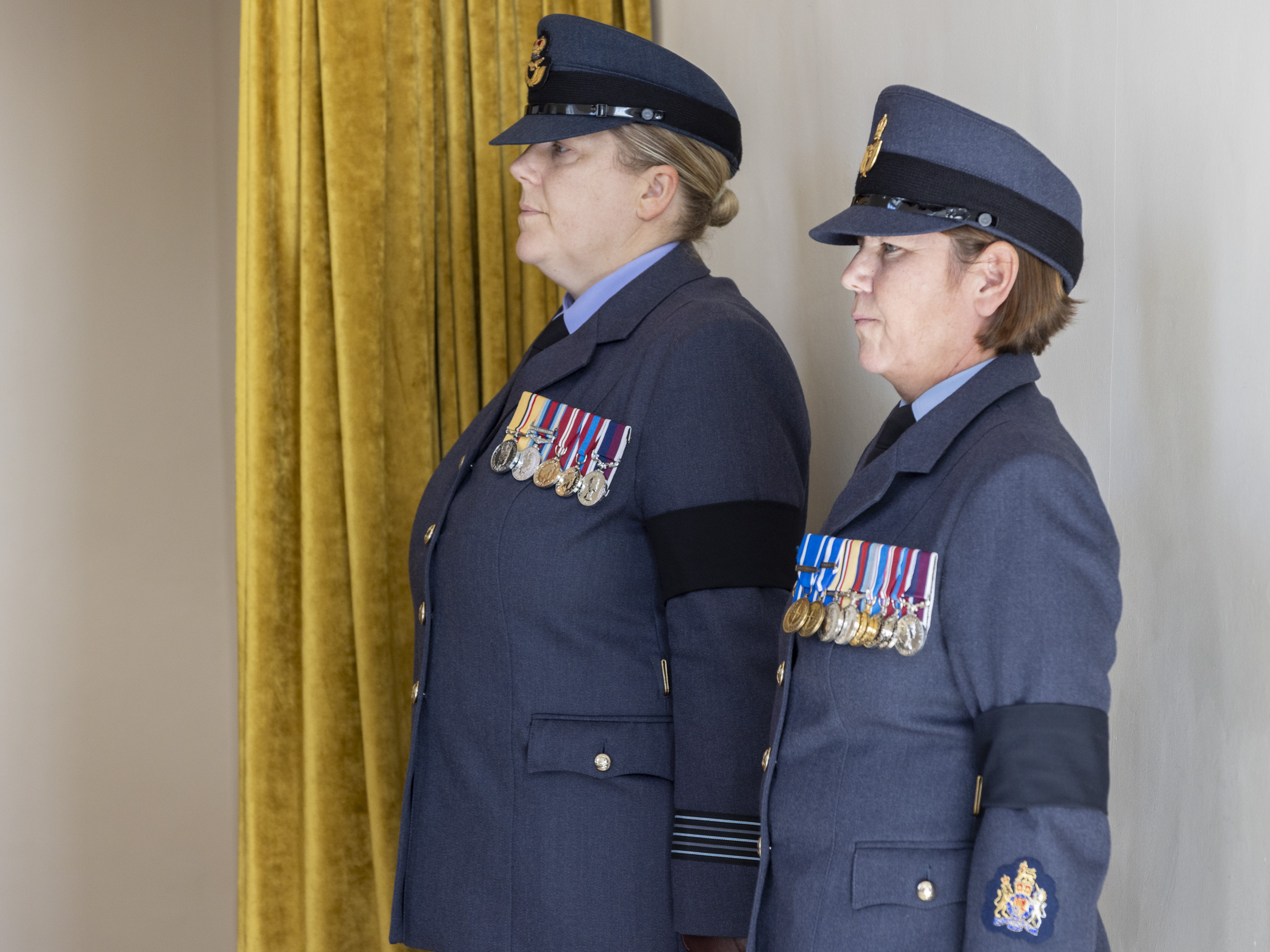
Shortly after the crew had escaped the wreckage, they were taken in by the Karen, an indigenous and friendly tribe who had seen the aircraft crash, trailed them and covered up the rather obvious tracks the crew had left.
The Karen showed them places to hide, brought food and water, and informed them that the local Burmese were not friendly and had only a few days previously handed over the crew of a Beaufighter to the Japanese, who beheaded them.
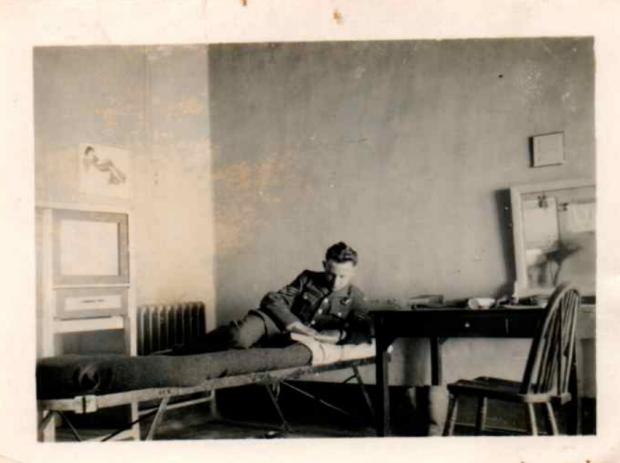
Over the next few days, Joel and his fellow airmen evaded the heavily armed Japanese patrols who were hunting them, by moving from village to village, hiding in the jungle by day and sleeping in the tribal settlements at night with sentries posted to warn of any enemy approach. After several river crossings and close encounters with the Japanese, the team met up with a British Special Operations Agent who had parachuted into the area with transmitters and further instructions.
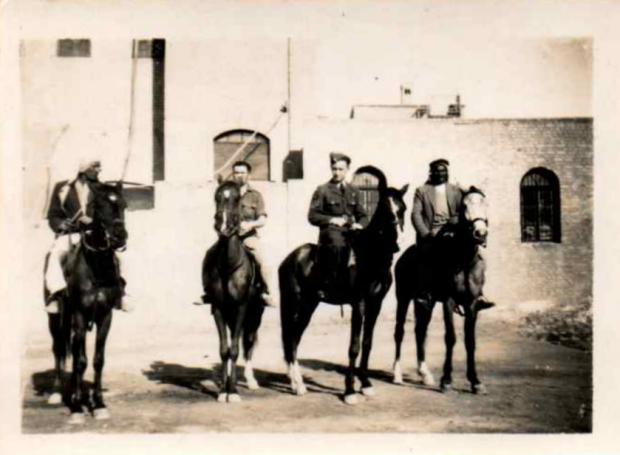
Several more days of evading and navigating through the treacherous jungle saw Joel finally make it to the coast, where a rescue boat had arranged a rendezvous to recover the crew.
“Joel’s story really resonates with us, and it helps us to better understand the way we need to prepare our people that will be placed at risk of isolation should unfortunate events happen. Not only is it important that we recognise the bravery of the downed crew, but it is also important we learn the lessons of the past to better prepare for the future”. Many of the procedures and tactics the crew employed are as relevant today as they were then in ensuring their safe recovery. We will be celebrating Joel’s life and his amazing account at our forthcoming symposium dinner, where we will present a vignette of Joel’s story to all in attendance” Warrant Officer Andy Ives, Personnel Recovery Instructor at DSTO
After almost three-and-a half years in India, Joel returned to the UK with his squadron in November 1945, and after 10 years in the RAF, Joel left the Service, aged 28. He worked as a forester with the Forestry Commission in the Cotswolds while studying land management at Cirencester Agricultural College.
After qualifying, his first post was as land agent at Whipsnade Zoo. He went on to work in the North East of England with the Ministry of Agriculture Fisheries and Food until he was transferred to Truro in 1966, where he worked until retirement. He went on to work in the North East of England with the Ministry of Agriculture, Fisheries and Food until he was transferred to Truro in 1966, where he worked until retirement.
Reflecting on the emotional ceremony and his late fathers’ life, Jack Said;
“Seeing the Royal Air Force here today, says that what he did out in India for those three long years was important, and it mattered.”







